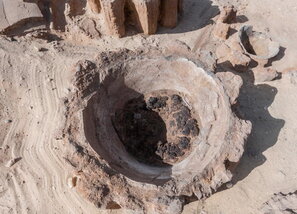
Judd Foundation in Marfa, Texas, are among 225 beneficiaries of new grants from
the National Endowment for the Humanities that were announced on Wednesday.
The grants, which total $24 million, will support projects at museums, libraries,
universities and historic sites in 45 states, as well as in Washington and Puerto Rico.
They will enable the excavation of a newly discovered ancient Egyptian brewery by
researchers from New York University, the implementation of a traveling exhibition
honoring Emmett Till’s legacy at the Children’s Museum of Indianapolis, and
research for a biography of the congressman and civil rights leader John Lewis by
David Greenberg, a professor at Rutgers University.
Adam Wolfson, the endowment’s acting chairman, said in a statement that the new
projects “embody excellence, intellectual rigor and a dedication to the pursuit of
knowledge, even as our nation and the humanities community continue to face the
challenges of the pandemic.”
As part of a new grant program in archaeology and ethnography, seven of the
awards will support empirical field research, including the excavation of the ancient
city of Teotihuacan in central Mexico and the investigation of settlement and
migration patterns on the Micronesian islands of Pohnpei and Kosrae.
In New York, 40 projects at the state’s cultural organizations will receive $6.6
million in grants. Funding will support the creation of a digital, open-access
database of the endangered Uto-Aztecan language Wixárika, from west-central
Mexico, at the New York Botanical Garden; the expansion of the Freedom of
Information Archive, a digital resource of 4.6 million declassified documents, at
Columbia University; and the production of a 15-episode “Radio Diaries”
documentary podcast series, which uses archival audio recordings to tell forgotten
stories of 20th century America, like that of the last surviving Watergate burglar.

 RSS Feed
RSS Feed